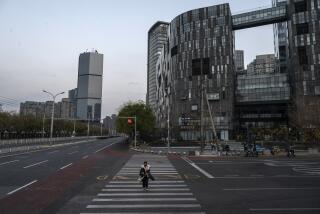Western visitor deciphers China
As a young man from Brooklyn seeking adventure, Seth Faison found himself thrilled by the challenge of China’s secrets, including Emperor Qin Shihuang’s concealed tomb beneath a simple hill near Xian, the twilight industry of illegally copied music CDs, a furtive gay marriage in Shanghai and especially the shuttered land of Tibet.
In his first book, “South of the Clouds: Exploring the Hidden Realms of China,” Faison deftly evokes the vast country’s contradictions and the fascinations it offered for him, both as a student of Chinese in Xian in the 1980s and as a reporter in the 1990s for a Hong Kong daily and then for the New York Times from 1995 to 2000.
His travail studying Chinese characters resonates: “I had to learn and forget a word ten to twenty times before I could hold on to it.” Of the conformism in Chinese society, he writes, “I could understand those cowardly habits of mind because I had them myself.... I usually felt more comfortable at the rear of a crowd than at the front.” The uncovering of Chinese secrets -- endless because of China’s uncertainties about itself -- turned out to be the answer to Faison’s felt vulnerabilities.
Romantic about life, Faison is realistic about China. Corruption rises like a stench from his pages. One chapter is titled “Encounters With the Police.” Politics, of course, is the ultimate Chinese secret, and Faison threw himself into covering the democracy movement of 1989 and its tragic denouement in Tiananmen Square for the South China Morning Post; the stress and tumble of those events brought him to the brink of nervous collapse.
Burned out, he returned stateside, landing a job on the city beat at the New York Times. Hair-raising pages follow on the priests, dogma and ritual within this cathedral of journalism. Then in 1993, his coverage of the Golden Venture, which ran aground in New York harbor disgorging 300 would-be Chinese immigrants to eventual death, imprisonment or deportation, propelled Faison, by now fluent in Chinese, to become the newspaper’s Shanghai bureau chief.
Careful readers may dispute some of Faison’s statements: Deng Xiaoping was not one of the first high leaders -- but among the last -- to be purged in the Cultural Revolution. Dog is a delicacy not only in “poor and remote areas” but in the restaurants of many southern cities. But “South of the Clouds” is witty, sparse in a finely crafted way, full of unpredictable angles and penetrating in its moral simplicity.
Today Faison finds China’s twin gods to be nationalism and foreign money, and everywhere one can see the “big bellies of sudden wealth.” But his first impressions on arriving as a student in Xian in the ‘80s were of a “tangled mass” of train travelers, “teeming seas of cyclists” in city streets, “filthy” old trucks and pea-green dormitory hallways with the dimmest of lightbulbs.
Perhaps he portrays China this way at the start, the better to tear off the collective veil and reveal a quirky cast of Chinese characters later. Drawn to Chinese who flirt with the forbidden, he breaks journalistic rules -- even writing a profile for the Times of a woman with whom he was having an affair.
Through the course of the book, Faison matures spiritually with the speed of a bamboo shooting up after rain. In Xian, he fumbles with Chinese characters, doubts his masculinity and has trouble bedding women. A decade later, “worn down by the emotional dislocation of being an outsider” in China, he goes to Tibet seeking an answer to the riddle of life and death. He watches a corpse pecked and transported to the heavens by whooshing vultures in a “sky burial” of Buddhist tradition. Rejuvenated, he declares his China experience over, quits the Times, marries suddenly and retreats to the never forbidden realm of Santa Monica.
Faison’s intense experiences in China and Tibet taught him the preciousness of life. “What lies at the heart of most secrets is, in the end, utterly human,” he writes. Indeed, “South of the Clouds” is an utterly human book, a stunning and delightful complement to his industrious newspaper dispatches.
*
Ross Terrill is the author of “The New Chinese Empire,” which won the 2003 Los Angeles Times Book Prize for current interest.
More to Read
Sign up for our Book Club newsletter
Get the latest news, events and more from the Los Angeles Times Book Club, and help us get L.A. reading and talking.
You may occasionally receive promotional content from the Los Angeles Times.








